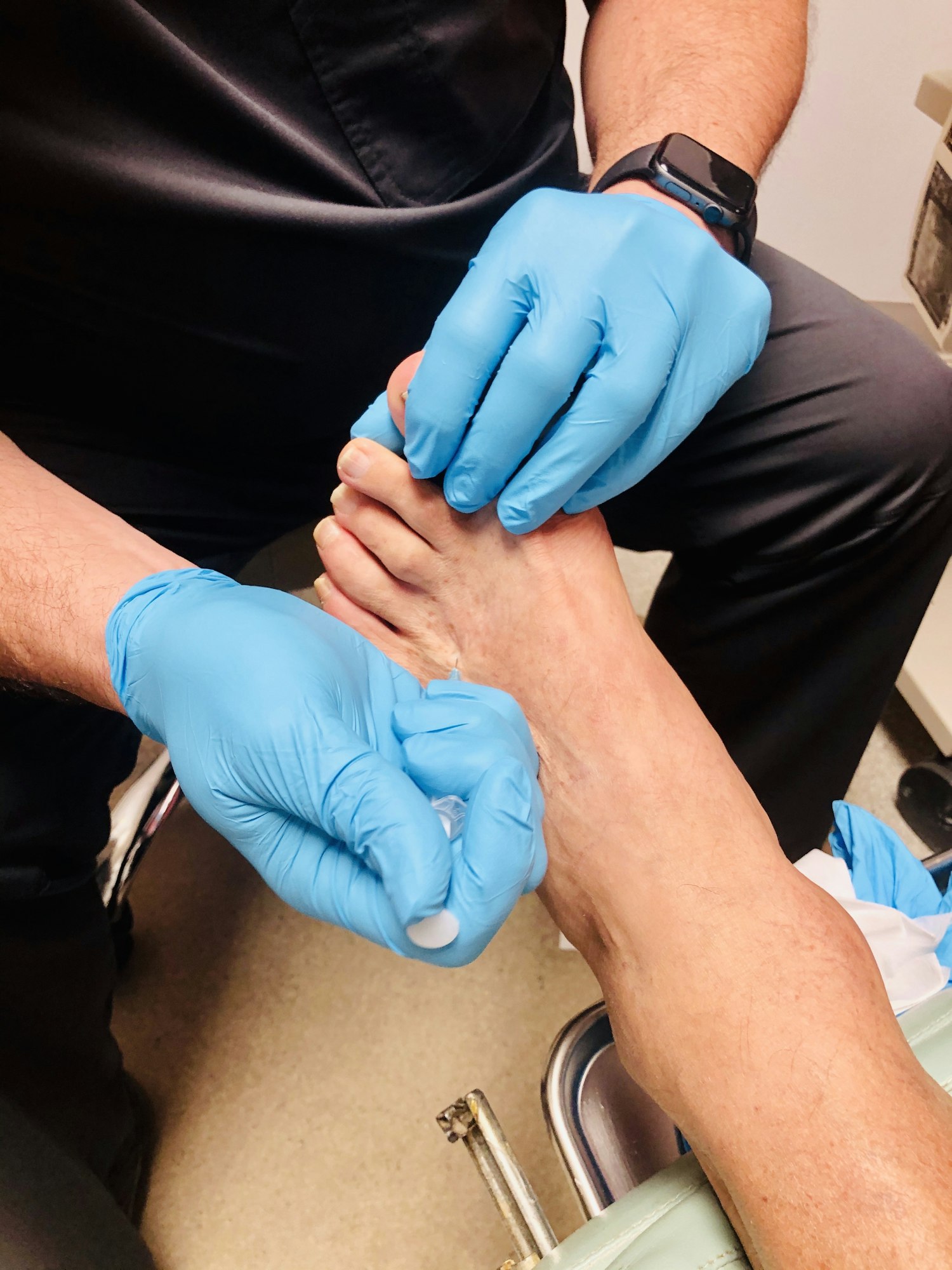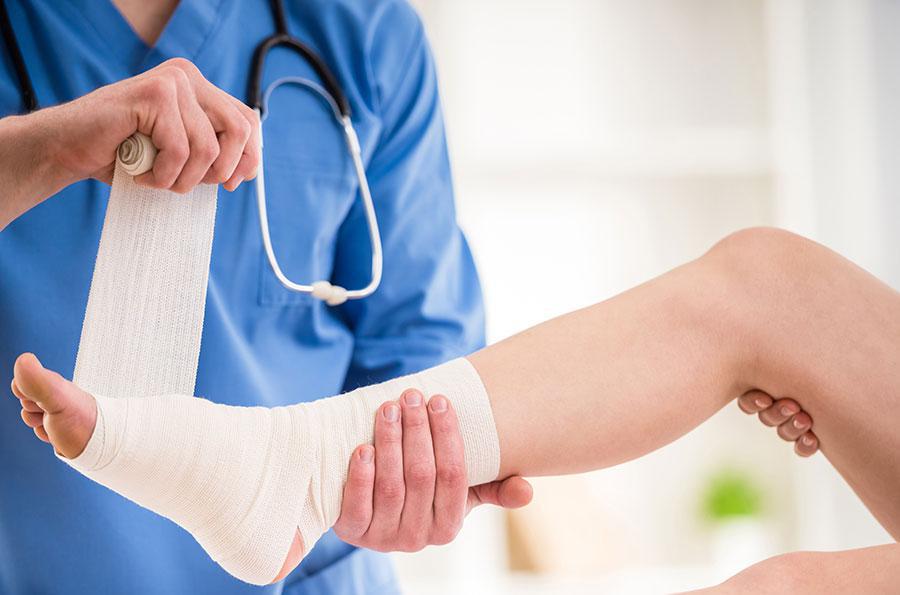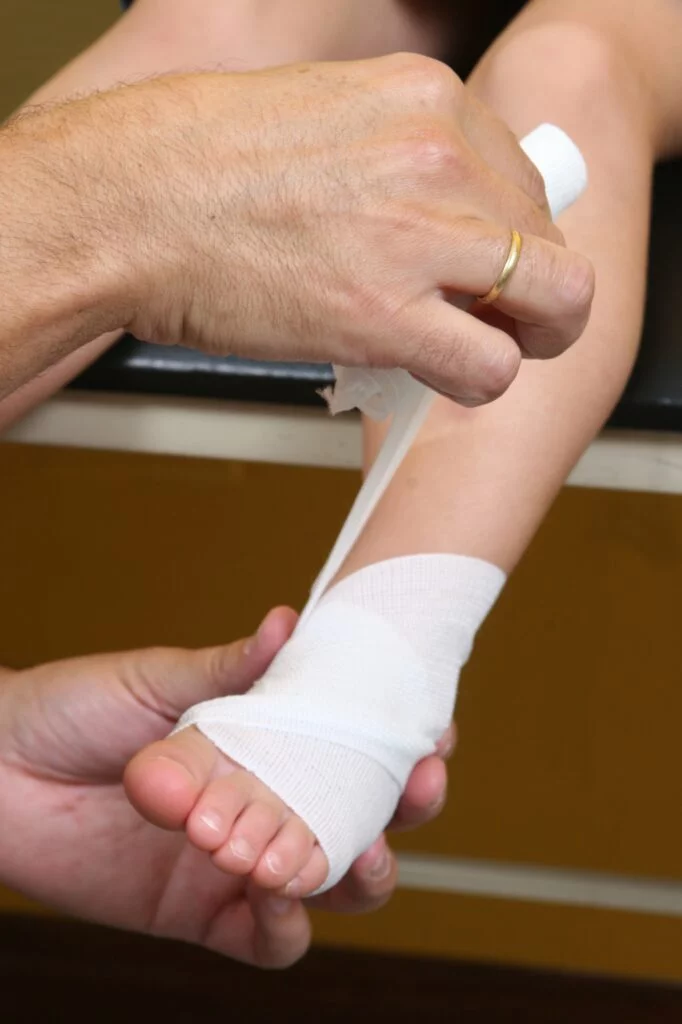What Types of Wounds Require Medical Treatment?
Our podiatrists have training in the diagnosis and management of chronic, non-healing wounds like:
- Diabetic Ulcerations: Diabetic ulcerations develop when high blood sugar levels damage the lining of your blood vessels, leading to wounds opening in your skin. Diabetes naturally slows down the healing process, which leads to non-healing wounds.
- Pressure Ulcerations: Pressure ulcerations develop when pressure is applied to the skin for long periods of time. This is often due to bed rest — which causes bed sores — but can also occur from improper footwear.
- Venous Ulcerations: Venous ulcerations develop in varicose veins that cause blood to pool in your veins and bulge outward. These damaged veins can break through your skin and open up, leaving a non-healing wound.
- Arterial/Ischemic Ulcerations: Arterial ulcerations develop due to poor blood flow, which allows the skin overlying your blood vessels to die, causing an open wound.
Ulcers can cause pain, itching, and general discomfort and can easily become infected, which may lead to gangrene and increases your risk of limb loss.
How are Ulcers Diagnosed?
Our providers diagnose the cause of your ulcer after a thorough consultation and physical exam. We will ask about your medical history, chronic health conditions, lifestyle, and symptoms.
We also examine your wound or ulcer to assess for artery and vein involvement and determines the severity of your ulcer.
Your provider works with you to explain the underlying cause of your wound and steps you can take to prevent more wounds from forming. Education is a key component of your wound care.
How are Ulcers Treated?
We have the best wound care specialists in Northern California to help you heal. Your provider begins by carefully cleaning your wound and removing any damaged or dead tissue from the area.
They work with vascular surgeons, reconstructive microsurgeons, and other specialists to repair damaged blood vessels so your body can heal naturally.
We take a comprehensive and long-term approach to treating ulcers and non-healing wounds to protect the health of your lower limbs and body as a whole.
To learn more about wound care, call our nearest office or use the online scheduling tool.





